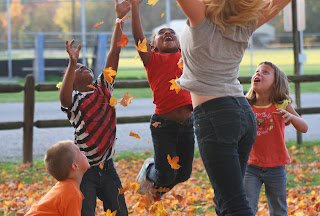However, you as a parent should know the milestones so you can know when there is actually a problem.
The first five years create the foundation for the child to accomplish key developmental milestone advances in mind and body. It is during these years that the brain undergoes its most dramatic growth in gross, fine motor, language skills, thinking and social interactions.
So how can you tell the difference between a child who is just taking his or her time and one who has a true developmental delay?
According to Marat Zeltsman DO of Joe DiMaggio Children's Hospital, a developmental delay is when a child does not reach a milestone by the upper range of normal.
Even though babies develop at their own pace, he explains, "Every child should do certain tasks by a certain age."
These tasks fall into five main categories:
• Gross motor skills, such as crawling and walking
• Fine motor skills, such as stacking blocks or coloring
• Language skills, including speech and comprehension
• Thinking skills
• Social interaction
Using input from the CDC and the American Academy of Pediatrics, WebMD compiled a rough timeline of milestones in the above areas. Remember, a child can stray from this timeline and still be within the range of normal, but it's best to discuss any concerns with your pediatrician.
Timeline of Childhood Milestones
2 Months
Smiles at the sound of your voice and follows you with their eyes as you move around a room
3 Months
Raises head and chest when lying on stomach
Grasps objects
Smiles at other people
4 Months
Babbles, laughs, and tries to imitate sounds
holds head steady
6 Months
Rolls from back to stomach and stomach to back
Moves objects from hand to hand
7 Months
Responds to own name
Finds partially hidden objects

9 Months
Sits without support, crawls, babbles "mama" and "dada"
12 Months
Walks with or without support
Says at least one word
Enjoys imitating people
18 Months
Walks independently
drinks from a cup
says at least 15 words
points to body parts


2 Years
Runs and jumps
Speaks in two-word sentences
Follows simple instructions
Begins make-believe play
3 Years
Climbs well
Speaks in multiword sentences
Sorts objects by shape and color
4 Years
Gets along with people outside the family
Draws circles and squares
Rides a tricycle
5 Years
Tells name and address
Jumps, hops, and skips
Gets dressed
Counts 10 or more objects
In my next post I will be talking about conditions that may cause a child to develop slower that others.
Image courtesy:
Madamnoire.com
beautifulblackbabies.tumblr.com
mybrownbaby.com
pinterest.com
chickensmoothie.com
grabpage.info
slate.com
tiffanylise4.wordpress.com












No comments:
Post a Comment